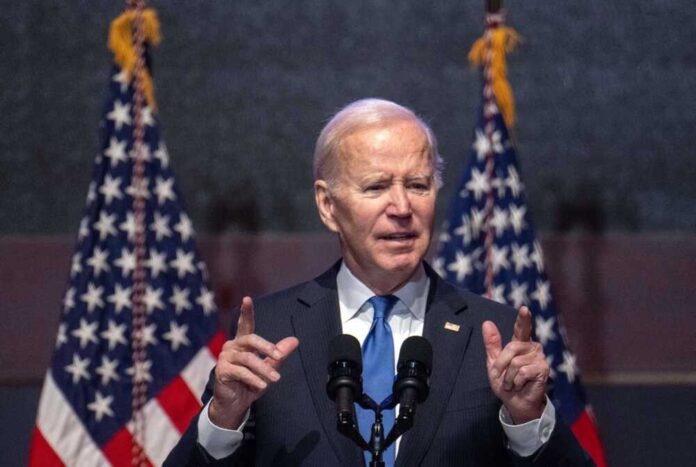
Joe Biden’s radical immigration parole program has been facing criticism from immigration attorneys and experts for a loophole that allows migrants to be in a safe third country before they apply for admission to the U.S. The Daily Caller reported over the weekend that the Customs and Border Protection (CBP) agency had confirmed the existence of the loophole, which is seen as a violation of federal immigration law by some experts.
Biden launched the program in January, arguably to offer humanitarian parole to migrants from Haiti, Venezuela, Nicaragua, and Cuba. The program allows those with a sponsor in the U.S. to apply for parole, granting them legal entry to the country for two years.
Immigration attorney Maria Herrara Mellado shared her experience of clients who were approved for the program while in safe third countries, saying, “Our clients, some of them, they just arrived in a third country. Let’s say they buy a plane ticket. It happened. They just happen to be in the Dominican Republic or on a short vacation.”
EXCLUSIVE: There’s A Massive Loophole In Biden’s Immigration Parole Program
“Our clients, some of them, they just arrived to a third country. Let’s say they buy a plane ticket,” Immigration attorney @MariaHerreraMe told me, adding “It happened. They just https://t.co/ft3kQ1dWRB… https://t.co/wnQIhDlNj2
— Jennie Taer (@JennieSTaer) February 26, 2023
Former acting CBP Commissioner Mark Morgan believes the loophole is illegal, adding, “You could be anywhere and still apply for parole, even though they’re in a safe third country, which is yet another example of why we say this is a perversion, violation of the law that they’re using as a shell game to claim a victory that they’re addressing the crisis.”
The revelation of the loophole comes as the Biden administration plans to implement a rule disqualifying migrants seeking asylum in the U.S. who have already passed through other safe countries. Migrants from Venezuela, Cuba, Haiti, and Nicaragua who cross the U.S. border illegally will be expelled under the Title 42 rule, a Trump-era public health order designed to slow the spread of COVID-19.
The U.S. Citizenship and Immigration Services (USCIS) did not respond to multiple media requests for comment on how many parolees have been in safe third countries. However, the agency’s website states that parole applicants are disqualified if they are residents, dual nationals, or refugees of another country, except if they are immediate family members of Cuban, Haitian, Nicaraguan, or Venezuelan nationals living in another country.
While USCIS has outlined this requirement, Mellado believes there are exceptions to the rule, which could allow thousands of migrants to receive parole each month. But, she said, “I’m pretty sure we’re going to get lots of people now with that situation. People either claim they have a second nationality. And how is this government gonna know that they don’t?”
The immigration parole program has been criticized by immigration experts, claiming it offers false hope to migrants who do not qualify for asylum. Even immigration advocates argue that while the program provides a legal route to enter the U.S., it is not a permanent solution for migrants who seek asylum.













